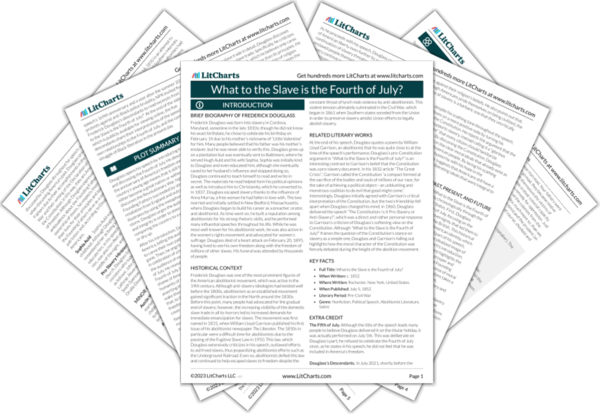Douglass subtly emphasizes the disparity between how he and his audience experience the Fourth of July: they are more interested in the holiday than him, and their formal education means they likely know more about it than him. His comment about Americans’ love for history that makes them look good also serves as a subtle criticism of the audience, since the implication is that Americans ignore history that does
not make them look good. Lastly, he alludes to the racism he has experienced by implying that he is not given as much of a right to analyze the Founding Fathers as white men, who can more easily claim to be descended from the Fathers.
